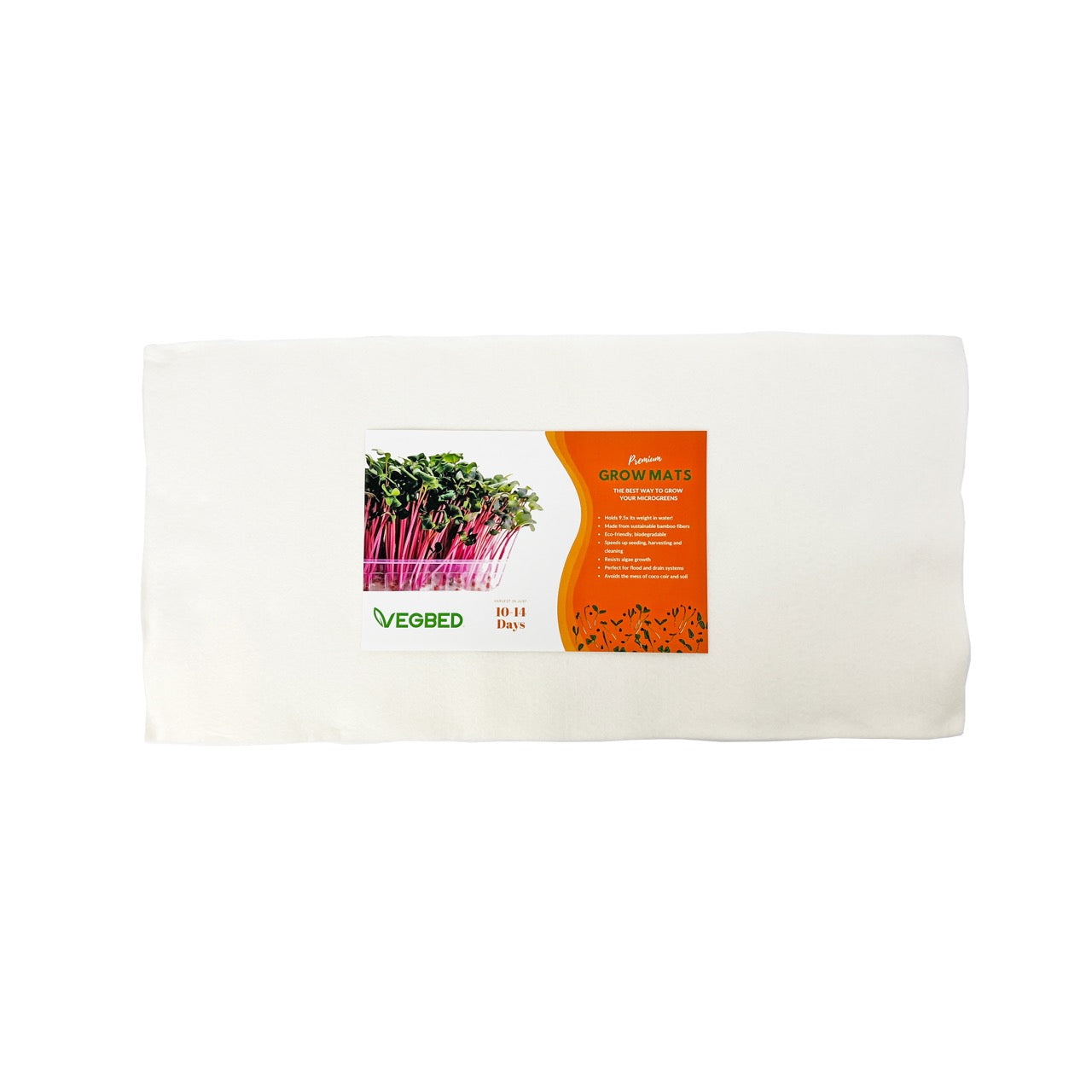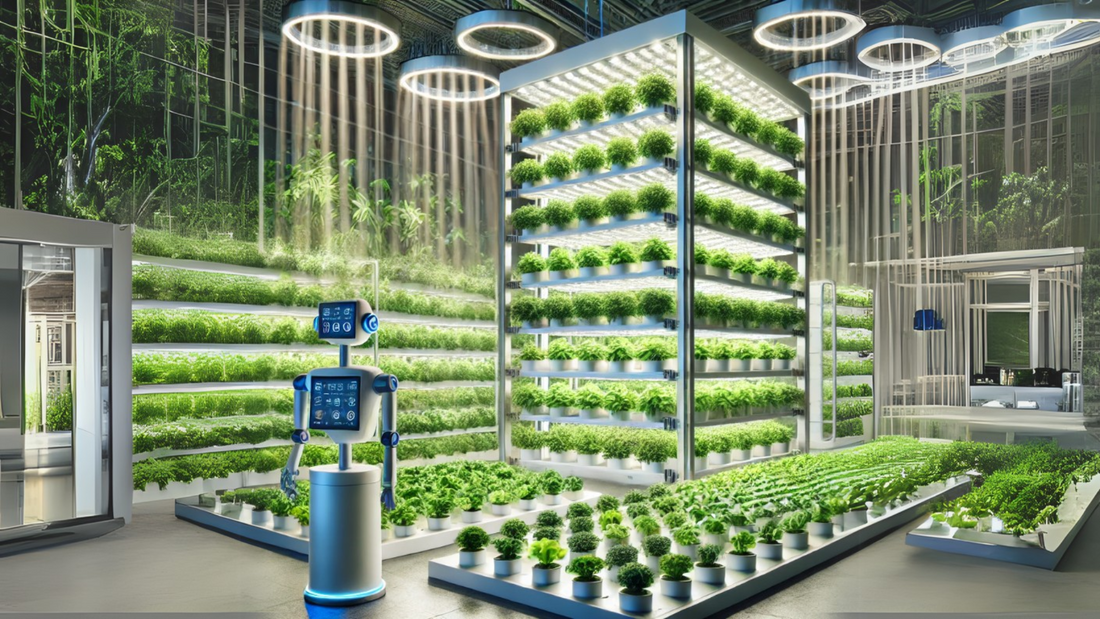Artificial intelligence (AI) is reshaping the future of agriculture, offering scalable solutions to the pressing challenges of food security and sustainability. From optimizing crop yields to automating farming processes, AI has become a game-changer for vertical farming, hydroponics, and precision agriculture.
At CES 2025, the spotlight was on AI-powered agricultural technologies. The event showcased groundbreaking innovations from companies like Airfarm, Urban Ponics, and Rowain, highlighting how Agritech leaders leverage AI to transform farming.
The Role of AI in Agriculture
AI integrates advanced data analytics and automation to optimize farming operations. By using AI-driven tools, farmers can achieve:
-
Resource Efficiency:
AI minimizes waste by accurately managing water, fertilizers, and energy. -
Improved Crop Health:
Real-time data collection and predictive algorithms detect issues like pests or nutrient deficiencies early. -
Scalable Solutions:
AI systems enable urban vertical farms and hydroponic setups to produce more food in less space, making sustainable farming accessible worldwide. -
Climate Adaptability:
AI tools help farmers adapt to changing weather patterns, ensuring consistent yields regardless of environmental challenges.
AI at CES 2025
The agricultural world is witnessing a transformative wave powered by AI, as showcased at CES 2025. From predictive analytics to automated systems, these innovations are revolutionizing sustainable farming. Let’s dive into the key applications reshaping the industry and spotlight the companies leading the charge.
AI Applications Revolutionizing Sustainable Farming
Predictive Analytics for Crop Health
AI systems are turning data into actionable insights, using sensors and drones to monitor plant health in real-time. Early detection of diseases or nutrient deficiencies allows farmers to act before significant damage occurs.
Automated Resource Management
AI optimizes the use of water, light, and nutrients, reducing waste while enhancing productivity. Companies like Bowery Farming and AeroFarms have shown how automation can lead to significant resource savings and a smaller environmental footprint.
Yield Prediction and Market Alignment
Accurate yield predictions powered by AI help farmers match their production to market demands. This reduces surplus, minimizes waste, and ensures growers maximize profitability while meeting consumer needs.
Vertical Farming Automation
AI-driven vertical farming systems manage multiple layers of crops, providing each plant with precise care. From light intensity to hydration schedules, AI ensures optimal growth for every crop in the stack.
AI Leaders at CES 2025
This year’s CES spotlighted several trailblazers pushing the boundaries of AI in agriculture:
-
Airfarm
Airfarm showcased its revolutionary AI-driven platforms that connect farmers to critical data. Their solutions optimize resource management, from water usage to pest control, ensuring sustainable farming practices across diverse landscapes. -
Urban Ponics
Specializing in urban farming, Urban Ponics uses AI to automate hydroponic and aquaponic systems. Their technology ensures precise nutrient delivery, lighting control, and water recycling, making sustainable urban farming more accessible. -
Rowain
Rowain demonstrated their autonomous farming equipment designed for precision planting and harvesting. Their AI systems analyze soil data in real-time, improving crop quality and reducing operational costs for large-scale farms. -
Nanomik
Nanomik is leveraging AI to develop smart biotechnologies that protect crops from pathogens. Their eco-friendly solutions integrate seamlessly with AI-powered farms, helping growers minimize chemical usage while ensuring plant health. -
Farm Fleet
Farm Fleet presented their cloud-based platform that uses AI to coordinate and monitor fleets of farming machinery. By optimizing equipment usage, they help reduce fuel consumption and improve farm efficiency, particularly for large-scale operations. -
BioGrow AI
BioGrow AI focuses on sustainable agriculture through AI-enhanced soil health monitoring. Their tools identify nutrient deficiencies and recommend eco-friendly fertilizers to support regenerative farming practices. -
Harvest AI
Harvest AI demonstrated their advanced crop monitoring drones. Equipped with AI, these drones can scan vast farmlands, detecting early signs of disease or water stress, allowing timely interventions.
Each of these companies is showcasing how AI can address the challenges of modern agriculture, from resource management to urban food production, ensuring a sustainable and scalable future.
Why Vegbed Complements AI Farming
As AI-driven farming systems evolve, products like Vegbed bamboo grow mats provide the perfect foundation for sustainable and efficient growing.
Key Benefits of Vegbed Mats:
-
Customizable Sizes: Available in standard 10x20 trays and convenient rolls that can be trimmed to fit any system.
-
Eco-Friendly: Made from 100% biodegradable bamboo, aligning with sustainable farming goals.
-
Hygienic and Mold-Resistant: Helps prevent common issues like damping off, ensuring healthy crops.
-
Simple Integration: Clean and mess-free, ideal for AI-controlled hydroponic and vertical farming systems.
How AI Enhances Vertical Farming and Hydroponics
AI is a natural fit for vertical farming and hydroponics, where precision is crucial. Advanced technologies enable:
-
Automated Monitoring:
AI systems track factors like light, temperature, and humidity in real time, adjusting conditions for optimal growth. -
Data-Driven Decisions:
By analyzing historical data, AI predicts future trends and prevents potential issues like nutrient imbalances. -
Increased Productivity:
AI-powered farms operate 24/7, maximizing efficiency and output without additional labor. -
Reduced Environmental Impact:
AI minimizes water, fertilizer, and energy use, creating a sustainable loop that benefits both farmers and the environment.

Challenges and Opportunities
While AI offers immense potential, challenges like high initial costs and technological learning curves remain. However, as more companies invest in R&D and consumer adoption grows, these barriers are expected to diminish.
The Road Ahead: A Collaborative Approach
The integration of AI in agriculture is more than a technological shift—it’s a collaborative effort among innovators, farmers, and sustainable product providers like Vegbed. Together, these advancements promise a future where agriculture is smarter, greener, and more efficient.
Ready to join the revolution? Vegbed’s bamboo grow mats are the ideal partner for AI-powered systems, helping growers achieve precision and sustainability effortlessly.
👉 Visit our website to learn more about Vegbed and start growing smarter today!



